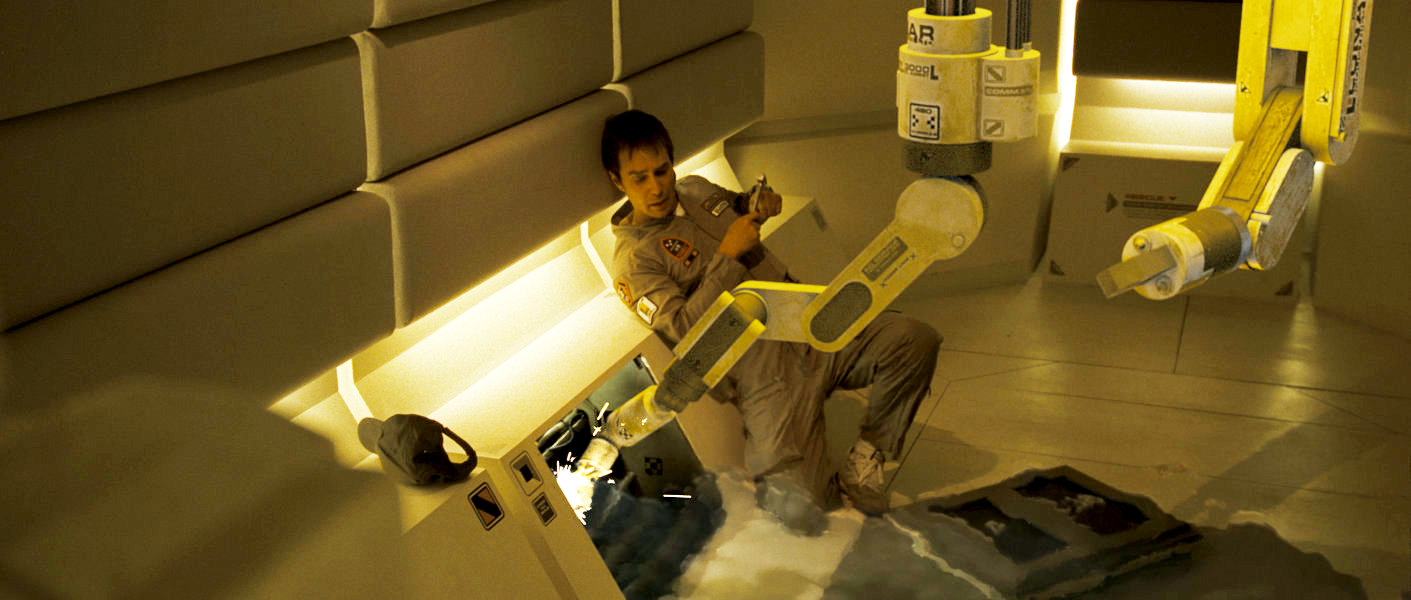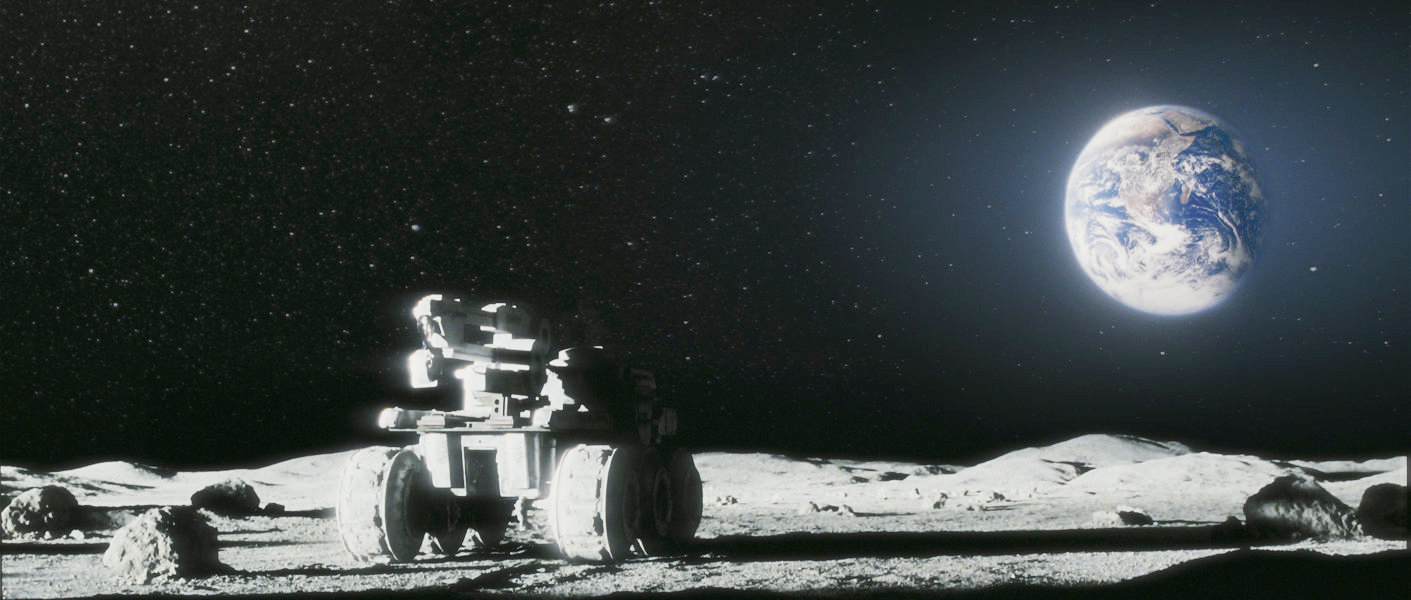
Not much stuff blows up real good in Moon, which seems to have irked a few critics out there — Mick LaSalle of the San Francisco Chronicle called it “agonizingly, deadeningly, coma-inducingly, they-could-bury-you-alive-accidentally boring.” and Peter Rainer of the Christian Science Monitor argued “It just may be the most boring movie ever made – period.” (Note: don’t click through to those reviews if you know nothing about the movie — they gave away a key plot point, which I knew going in, but which is probably best left as a surprise.)
But, frankly, those guys are bonkers — I don’t normally say this of critics, because, obviously aesthetic opinions will always differ. But I can’t believe, particularly in this economy, these guys are actually still paid to write about film. (In his review, Rainer also says 2001 is “the greatest boring movie ever made,” which suggests, to say the least, that we come at the hard sci-fi genre quite differently.) Well, whatever. Sure, I probably saw this film under ideal conditions for the subject matter — by myself at the 11:45pm showing — but I was riveted by it. And if you’re a science fiction fan (or a fan of Sam Rockwell, who’s showcased here to great effect), Moon is a must-see.
If I’m talking more about the critics than the movie here, it’s because Moon feels like a film it’s best to know very little about going in. I will say this: In what seems like the near-future, some sort of miracle energy source has been discovered in the sunlight encased within lunar rock. As such astronaut Sam Bell (Sam Rockwell) is finishing up a three-year solo stint on the far side of the moon, monitoring four big lunar harvesters for some Big Energy Company. With no one to keep him company but Gertie, the resident HAL 9000-like AI (Kevin Spacey), and the very-occasional time-delayed message from his wife and daughter, Sam is getting dangerously close to cracking out of sheer loneliness. (If you ever played old Infocom games, you’ll remember the occasional warning: “Talking to yourself is a sign of impending mental collapse.” — If so, Sam here is in a heap of trouble. Let’s just say the protein pills clearly aren’t working so hot.)
In any event, one day (or is it night?) Sam, suffering from delusions at this point, inadvertently wrecks his moon jeep while making his rounds. He awakens in the base several hours — or days — later, being tended by Gertie. But how did he get back from the accident? Why is Gertie now keeping him on lockdown? (Very possible answer: He’s “got to keep the loonies on the path.”) And who’s that rascally robot talking to when Sam’s back is turned — or is he still just hearing voices?
If this sounds like I am Legend with a robot instead of a dog, well, it starts out that way. But, soon, Sam finds himself facing one of those classic science fiction quandaries, and the mind games begin in earnest. What I found particularly impressive about Moon is that never once does Sam seem to do anything just to move the plot forward — everything here seems surprisingly well thought-out. I only have one minor complaint, and that is, at the very end, [Spoiler — Highlight to read…and see the movie first!] why send the harvester to knock out the jamming tower as Sam-Prime is leaving the station? I know he’s trying to help out Sam-Prime-Prime and every iteration thereafter, but doesn’t it ruin all the secrecy the Sams have been trying to establish for the past hour, and won’t it assuredly be fixed by the repair guys who just showed up?
That quibble aside, Moon is a rare treat for hard sci-fi fans, and suggests there’s a lot more to Duncan Jones than just “David Bowie’s kid.” If you get a chance, definitely check it out. (And remember: There is no dark side of the moon, really. As a matter of fact, it’s all dark.)


It lasted all of four days at my local theater…have to wait for it to hit my video rental…